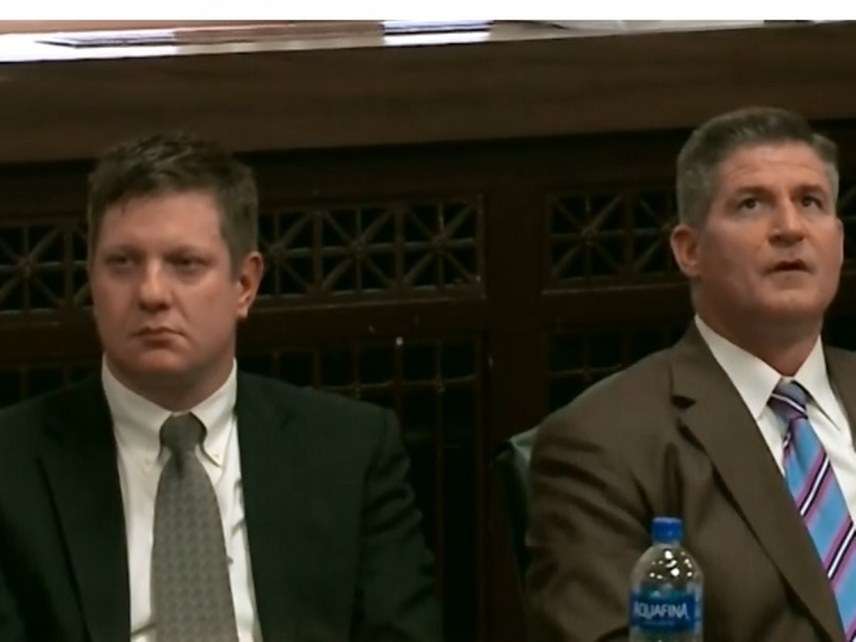Chicago Police Officer Jason Van Dyke Convicted of Second-Degree Murder for Killing Laquan McDonald
Also found guilty of 16 counts of aggravated battery, one for each bullet he fired.

Chicago cop Jason Van Dyke was found guilty this afternoon of second-degree murder in the shooting death of Laquan McDonald in 2014. McDonald's death was an abrupt encounter that tore at open wounds between Chicago's government and its community.
At the time of the deadly encounter, McDonald, then 17, was high on PCP and armed with a small knife. Police had been called out on the evening of October 20, 2014, because a suspect (later identified as McDonald) was allegedly breaking into vehicles parked in a lot.
Van Dyke was a late arrival to the confrontation. Before he got there, McDonald had reportedly swung his knife at one witness, who had called 911. Then, as police attempted to corral McDonald while still in their vehicles, he stabbed one of the cars in the tire and hit it in the windshield with his knife.
McDonald eventually fled to a Burger King parking lot and then into a nearby street, which is where Van Dyke and his partner arrived. When Van Dyke exited his police car, he pulled out his gun and opened fire on McDonald almost immediately, though the other officers on the scene didn't even have their guns drawn. He emptied his gun into McDonald, shooting him 16 times.
It's what happened afterward that drew the most outrage. Police officers worked to conceal what happened on the scene, and in initial reports they stated that McDonald had lunged at them with his knife.
Dash camera footage from one police car would show that this description of the encounter was not true. McDonald was not moving toward the officers at all at the time of the shooting. But it would take a year of resistance from Chicago officials (both in the police and at City Hall) and an order from a federal judge before that footage would be publicly released. And only as the footage was released was Van Dyke charged with murder.
Yesterday, as the Van Dyke case jury began deliberations, a judge unsealed internal police documents detailing the efforts to shield the officer, which included another officer saying a detective had ordered him or her to submit an incident report with false information to conceal what had actually happened on scene. A special prosecutor plans to use that information to file charges against three others at the Chicago Police Department for their role in the cover-up.
That the city (predictably) chose to protect an employee at the expense of public transparency and accountability is probably no surprise to most residents of Chicago. The anger at how the city had handled the Van Dyke case may be one reason why Mayor Rahm Emanuel abruptly decided not to seek a third term.
Van Dyke was also found guilty of 16 counts of aggravated battery, one for each bullet he fired. He was found not guilty of official misconduct. He was charged with first-degree murder, but the jury had the option to determine that there were mitigating factors to classify the shooting as a second-degree murder instead. The judge revoked his bail and he was taken into custody.
Van Dyke faces at least 15 years for the murder conviction and between six and 30 years for each of the 16 aggravated battery charges.
